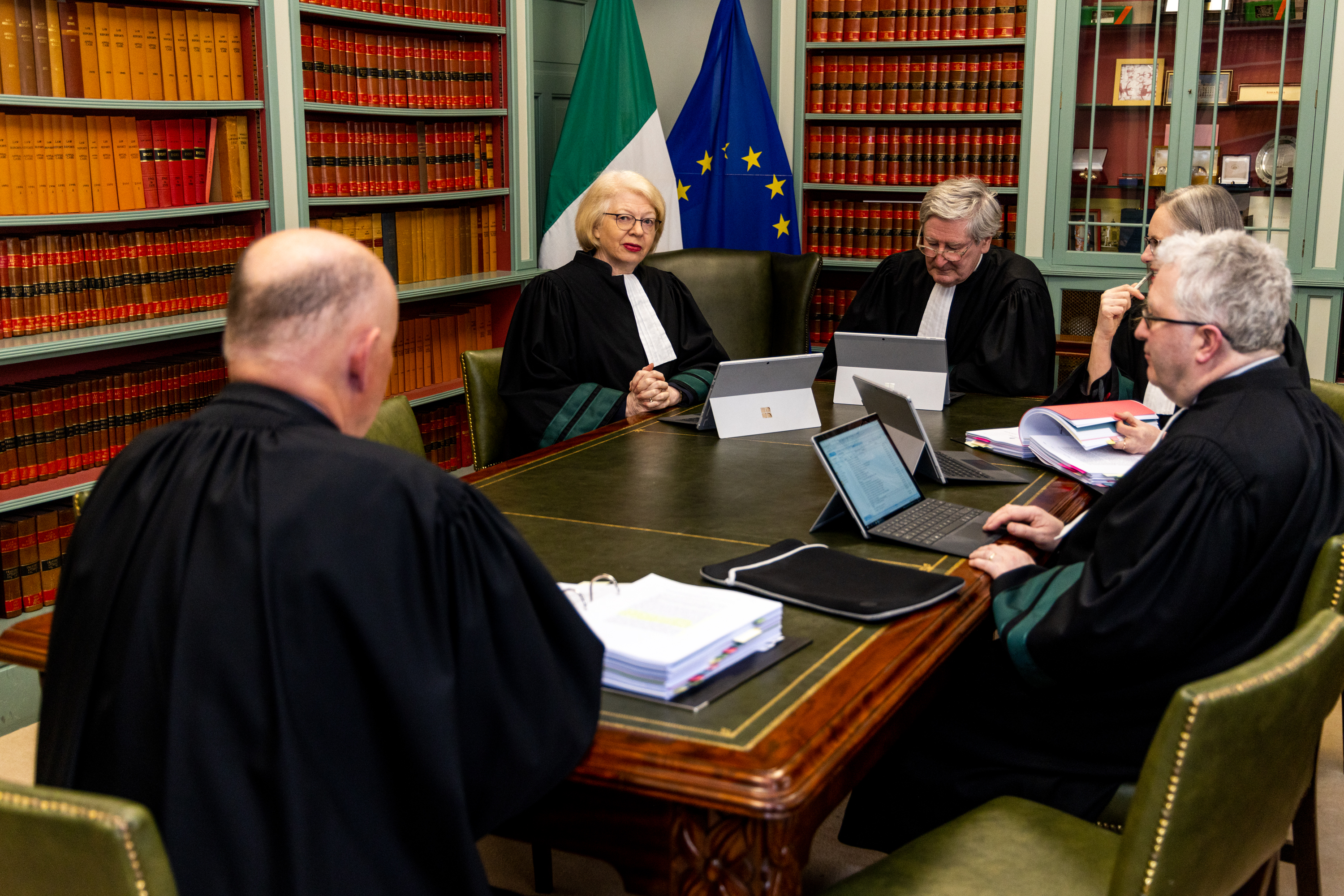Role of the Supreme Court
The Supreme Court of Ireland sits at the top of the Irish courts system and is the court of final appeal in civil and criminal matters. It also has the final say in respect of the interpretation of Ireland’s basic law, Bunreacht na hÉireann (the Constitution of Ireland). As the highest court in the land, the decisions of the Supreme Court are binding on all other courts in Ireland.

1) General Appellate Jurisdiction
Appeals are only heard where the Supreme Court grants permission once it determines that the relevant test set out in Article 34.5 of the Constitution has been satisfied.
Constitutional Tests
The Supreme Court hears appeals from decisions of the Court of Appeal where it is satisfied:
- that the decision involves a matter of general public importance, or
- in the interests of justice, it is necessary that there be an appeal to the Supreme Court.
The Supreme Court can also hear appeals from decisions of the High Court where it is satisfied that there are exceptional circumstances warranting a direct appeal to it, a precondition for the Court being so satisfied is the presence of either or both of the following factors:
- the decision involves a matter of general public importance, and/or
- it is in the interests of justice.
This is commonly referred to as a ‘leapfrog’ appeal because it bypasses the Court of Appeal.
2) Constitutional Jurisdiction
The Supreme Court has the final say in the interpretation of the Constitution of Ireland. It ensures that the laws enacted by the Oireachtas, Ireland’s Parliament, are upheld and interpreted in light of the Constitution and the jurisprudence that has developed since it came into force in 1937. In that way, it may be said to function as a constitutional court.
This is a role of particular importance in Ireland as the Constitution expressly permits the courts to review any law, whether passed before or after the enactment of the Constitution, in order to determine whether it conforms with the Constitution. The Superior Courts (the High Court, Court of Appeal and Supreme Court) retain the power to declare invalid legislation that is determined to be inconsistent with the Constitution.
3) Original Jurisdiction
The Supreme Court has original jurisdiction to deal with two particular matters when called on:
- where a bill is referred to the Supreme Court by the President of Ireland, in accordance with Article 26 of the Constitution, for a determination of whether that bill (or certain provisions of it), as passed by both Houses of the Oireachtas, is incompatible with the Constitution, and
- where the Supreme Court has been requested to determine, in accordance with Article 12.3 of the Constitution, whether the President of Ireland is incapacitated.
To date, no requests under Article 12.3 have come before the Supreme Court.
Article 26 Procedure
- Where the decision to refer a bill to the Supreme Court is made by the President, a constitutionally prescribed time limit of sixty days commences. During this time the Supreme Court must assign counsel to argue the unconstitutionality of the bill, hear oral arguments, adjudicate on the matter, and give its decision. The Government’s chief legal advisor, the Attorney General, argues in favour of the bill’s constitutionality.
- The decision reached by the Supreme Court in an Article 26 reference is required by the Constitution to be delivered in the form of a single judgment, where only the decision of the majority of the Court is given.
- Where the Court decides that a bill is incompatible with the Constitution, that bill must not be signed into law by the President.
- Where the constitutionality of the bill is upheld by the Court, the bill is signed into law by the President and afforded indefinite immunity from further constitutional challenge.
Since the enactment of the Constitution in 1937, the Article 26 mechanism has been invoked by the President of the day on sixteen occasions, with the Supreme Court determining in seven of those cases that the bill was incompatible with the Constitution.
4) Implementation of EU Law
Article 267 Preliminary Reference Procedure
The Supreme Court has a role in implementing the law of the European Union. As the court of final appeal in Ireland, it is obliged under the Treaty on the Functioning of the European Union to refer to the Court of Justice of the European Union questions regarding the interpretation of EU law which arise in cases before it, where the interpretation is not clear and clarification is necessary in order for the Supreme Court to decide a question before it.
